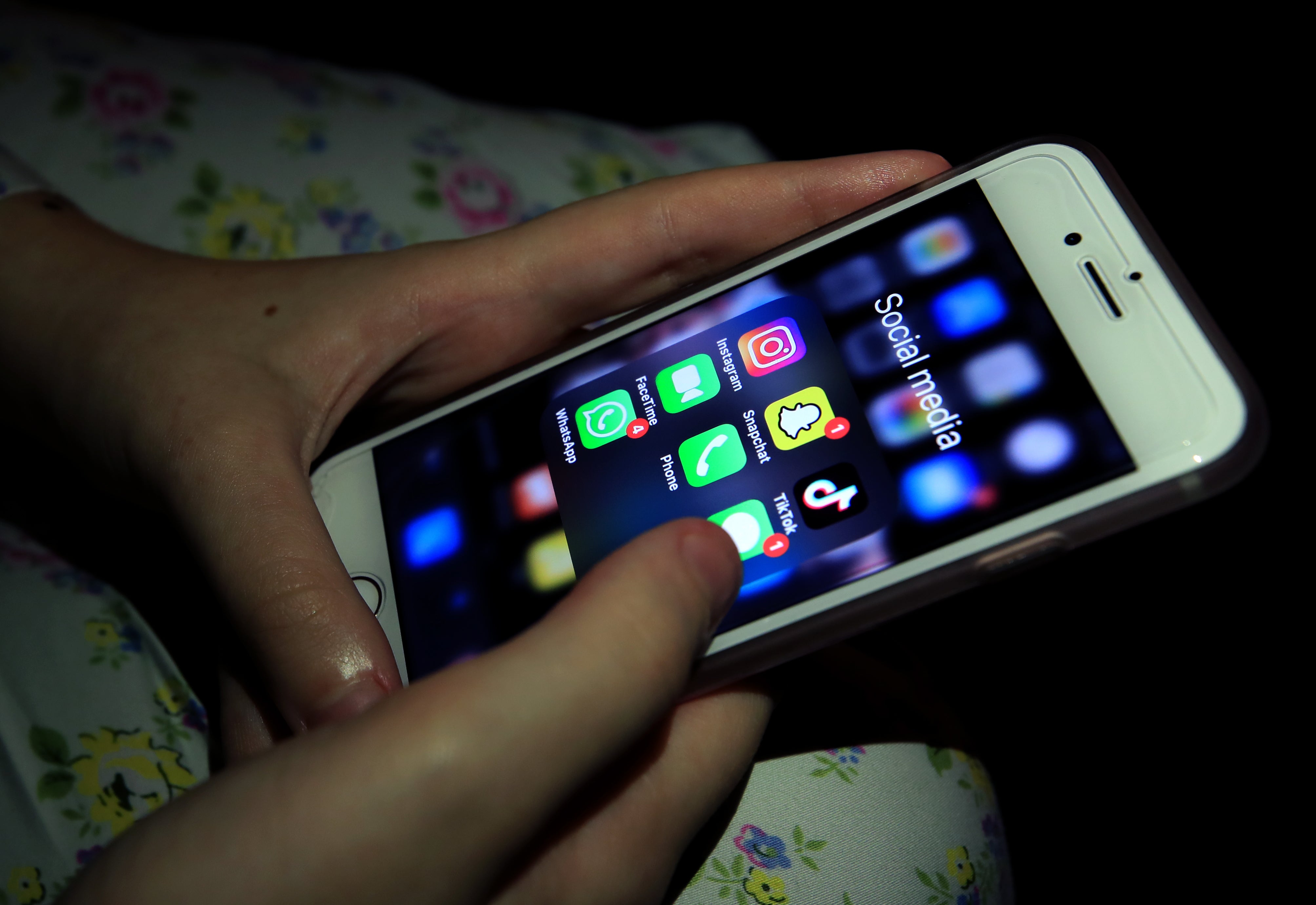‘Primary school children miss out on sleep as they scroll through social media’
The study found that children who used social media more were more likely to report higher levels of Fomo, anxiety, and worse sleep.

Your support helps us to tell the story
From reproductive rights to climate change to Big Tech, The Independent is on the ground when the story is developing. Whether it's investigating the financials of Elon Musk's pro-Trump PAC or producing our latest documentary, 'The A Word', which shines a light on the American women fighting for reproductive rights, we know how important it is to parse out the facts from the messaging.
At such a critical moment in US history, we need reporters on the ground. Your donation allows us to keep sending journalists to speak to both sides of the story.
The Independent is trusted by Americans across the entire political spectrum. And unlike many other quality news outlets, we choose not to lock Americans out of our reporting and analysis with paywalls. We believe quality journalism should be available to everyone, paid for by those who can afford it.
Your support makes all the difference.Primary school children are missing out on up to the equivalent of a full night’s sleep a week, with bedtimes being delayed by social media use, new research suggests.
Instead of getting the NHS-recommended nine to 12 hours every night, 10 to 11-year-olds are only getting an average 8.7 hours of sleep, a small study looking at social media use and sleep quality found.
The study found that children who used social media more were more likely to report higher levels of Fomo (fear of missing out), anxiety, and worse sleep.
This is quite terrifying when you think about the level of engagement that they're having
According to the research, conducted as schools started to reopen after Covid lockdowns, some 69.6% of the children reported spending more than four hours a day on social media.
Meanwhile 66.1% said they used it in the two hours before bed, and 12.5% said they used it in the middle of the night or when they should be asleep.
Researchers say that while there is no easy solution to the problem, parents and guardians should lead by example and try to limit the time they spend on social media.
A large majority (89.3%) of the 60 Leicester schoolchildren involved in the study said they used a mobile phone, 55.4% said they used a tablet, 23.2% said they used a computer and 9% said they used a smartwatch.
Experts suggest not getting enough sleep is linked to bad academic performance, and increased risk-taking behaviour.
Sleep is also when the growth hormone is released, suggesting that poor sleep could affect this.
The children were asked questions such as how disconnected they felt from their friends when not logged into social media, and how worried they were about school work, as well as how many alarms they needed to wake up.
Children were asked what time they went to bed, what time they fell asleep, and what time they woke up in order to judge their sleep quality.
The more time they spent on social media, the worse their quality of sleep, researchers say.
Researchers also looked at the types of social media they were using and found that TikTok was the most popular at 89.2%, some 83.9% said they used Snapchat, 87.5% used YouTube, and 57.1% used Instagram.
Perhaps indicating a generational difference, just 1.8% reported using Facebook, while Reddit and Twitter were two other apps that were used.
Surprising, the majority of the apps require users to be 13 or over.
Dr John Shaw, a lecturer at De Montfort University (DMU) in the division of psychology, said the findings are consistent with other research.
He added that the findings suggest primary school children are sleeping less, and social media is playing a part.
Speaking at the British Science Festival, being hosted by DMU in Leicester, Dr Shaw said: “This is quite terrifying when you think about the level of engagement that they’re having.”
Asked what his concerns were, he added: “I suppose it is that knock-on effect on sleep and what that means for the children in terms of their cognitive development and really their social development as well because if they are always online, what does that mean for them with their in-person socialisation?
“Because if you’re constantly worrying about what is going on online and you’re not there, that’s going to have effects, but with the Fomo and anxiety, we saw kids who are on social media more have increased anxiety levels, and it is just spiralling.”
Asked how poor sleep can affect children, Dr Shaw said: “It has an impact on their cognitive and biological development.
“When they sleep it’s very important for emotion processing and memory consolidation, creativity and problem solving.
“When you’re not getting enough sleep, those processes don’t get a chance to occur.
“When it comes to biological processes during sleep, when we enter slow-wave sleep, our body rests, recovers, releases growth hormone.
“They’re still growing, that’s why younger people tend to get more sleep than adults because they are going through biological changes.”
The researchers say the study, carried out with PhD student Sorcha Newby and currently under peer review, is the first to examine the role of social media use and sleep quality in pre-teens.